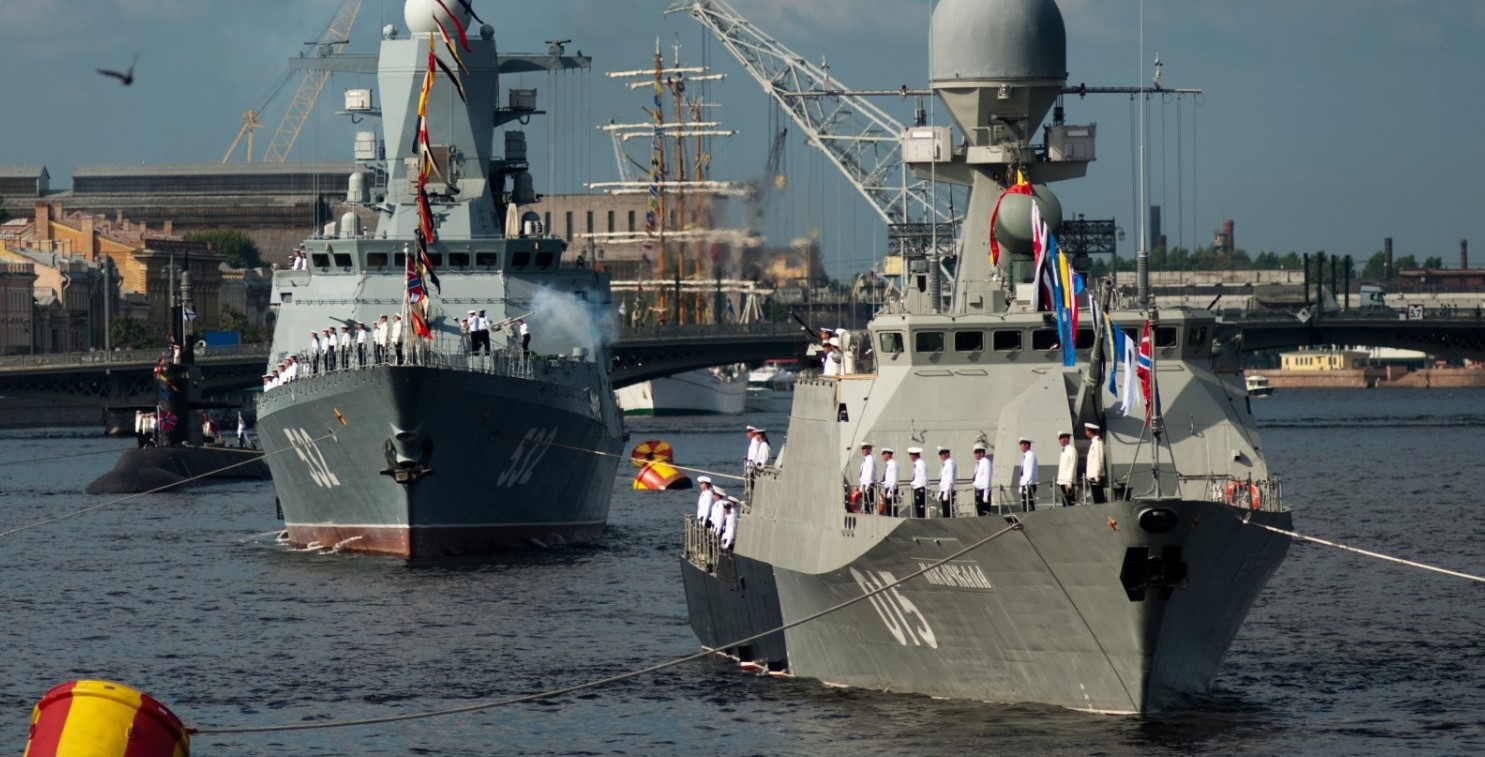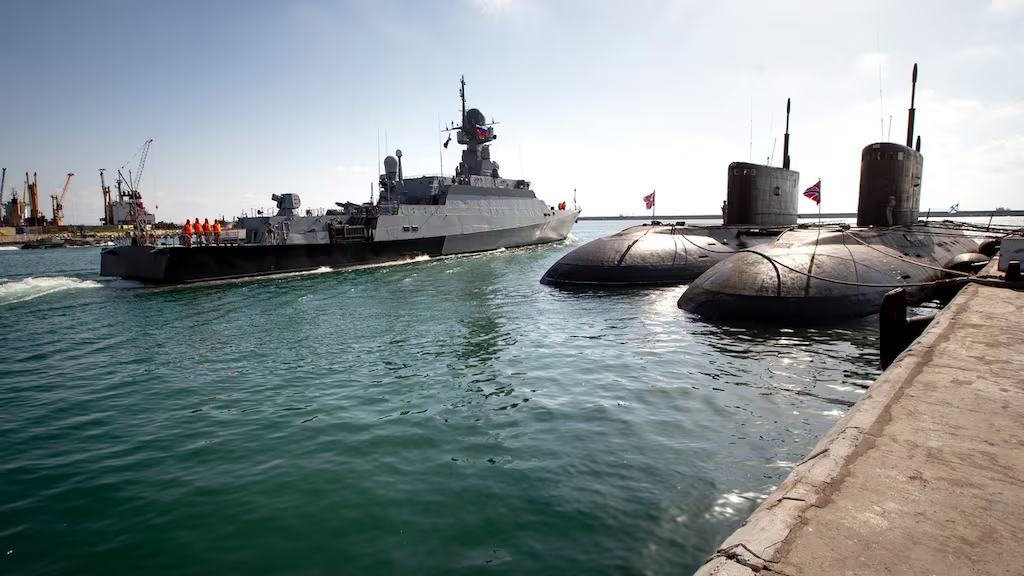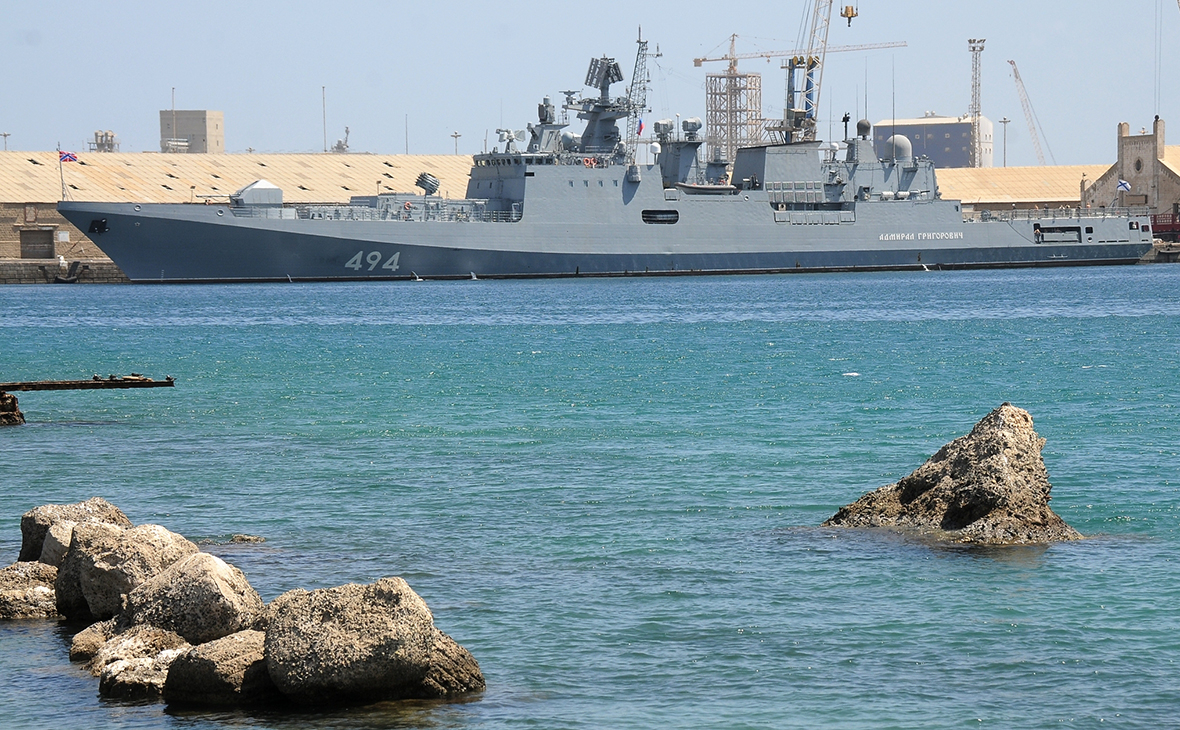Sudan Instead of Syria: Russia Has Agreed On New Base For Its Fleet
14 February, 2025 Project 20385 "Gremyashchi" of the Russian Navy. Photo credits: TASS The Sudanese government has stated that it sees no obstacles to ratifying an agreement with the Russian Federation to establish a naval base on the Red Sea coast.
According to the BBC, negotiations on the base were conducted during the rule of former President Omar al-Bashir. After his overthrow, the Sudanese military government took the issue under consideration, but no final decision was made. According to Sudanese Foreign Minister Ali Youssef, the agreement has already been signed, and the parties have reached 'full agreement' on the construction of the base.
 Russian Navy ships in St.
Russian Navy ships in St.
Petersburg. Photo credits: Russian media
The only thing left to do now is the formal ratification of the document, after which the establishment of the base will become an officially approved decision. 'Sudan and Russia have reached an understanding on the agreement on the Russian naval base,' Yousif said at a press briefing with his Russian counterpart, Sergei Lavrov, in Moscow on Wednesday.
The possible loss of Russia's main naval base in Tartus, Syria, threatens the presence of the Russian contingent in Africa. This, in turn, could deprive Moscow of its ability to influence strategically important regions, which are the Mediterranean, the Middle East and the Red Sea. The Red Sea is a key transport artery for the global economy, and its control is of significant interest to Russia.
 Russian ships and submarines in Tartus.
Russian ships and submarines in Tartus.
Photo credits: AP
The history of the agreement Russia has been trying to gain a foothold in Sudan since 2020, when the first agreement was signed to establish a logistics centre for the Russian Navy. According to the initial agreements, the Russian Navy could deploy up to four ships in Sudan, including nuclear-powered vessels.
The agreement was designed for 25 years and allowed the import and export of weapons, ammunition and other military equipment. The maximum number of Russian military personnel at the base was set at 300. However, in 2021, the new Sudanese government suspended the agreement, banning the construction of the base and the deployment of Russian warships.
 A Russian Project 11356R "Admiral Grigorovich" frigate in the port of Sudan, February 2021
A Russian Project 11356R "Admiral Grigorovich" frigate in the port of Sudan, February 2021
In early 2024, it became known that the implementation of that project had been postponed indefinitely due to the political crisis in Sudan. The planned base in Port Sudan could become Russia's first outpost in Africa and the Red Sea, giving Moscow control over routes through the Suez Canal, which carry about 10% of the world's maritime traffic. In addition to strategic benefits, Russia's military presence in Sudan could increase Moscow's influence on the country's internal processes.
In particular, its proxies, such as the Wagner PMC, have long supported coup attempts there.